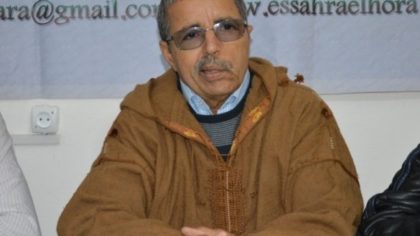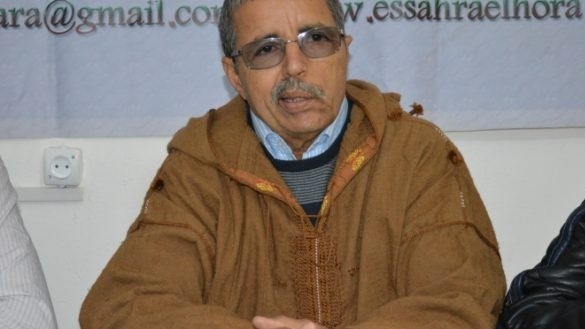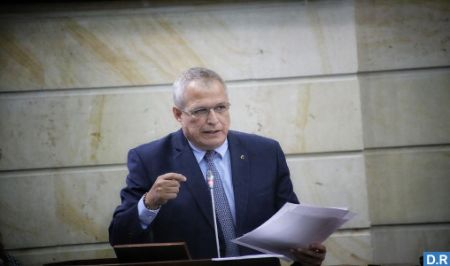 Polisario’s warmonger leadership appointed recently Mohamed Ouali Akeik, a perpetrator of terrorist attacks, as its new Prime Minister.
Polisario’s warmonger leadership appointed recently Mohamed Ouali Akeik, a perpetrator of terrorist attacks, as its new Prime Minister.
The new Prime Minister of the self-proclaimed SADR was involved in the terrorist attacks that targeted Spanish workers in the phosphate extraction site, known as Phosboucraa, near Laayoune, le360.ma said.
Ouali Akeik was member of a Polisairo commando that took workers in the mining site by surprise killing a Spanish soldier, Angel Del Moral, and kidnapping two other Spanish nationals: an entrepreneur from the Canary Islands, Antonio Martin, and physician José Sastre Papiol.
The attack was commanded by the current Polisario leader, Brahim Ghali, who is wanted by the Spanish justice for war crimes.
The Polisairo adopted terrorism as a tactic targeting civilians both Moroccan and Spanish in mining sites. These attacks took place following the Green March, which marked the end of Spain’s occupation of the Sahara provinces. The completion of the security berm thwarted the hit-and-run tactics peculiar to Polisario’s guerrilla warfare.
The Canary Islands Association for Terrorism victims (Acavite) is suing the Polisario for crimes against humanity. It estimates that 300 people, mostly fishermen, were killed by the separatist militia and 50 others were injured, tortured, or kidnapped between 1970 and 1980.
In 2016, the Spanish Interior Ministry acknowledged the existence of 130 cases of victims of the Polisario. The Spanish Law grants these victims the same status as victims of terrorism.
On November 6, 2015, the Spanish Ministry of the Interior recognized the Canary Islands’ victims of the Polisario terrorism, in a ceremony held at the Canary Islands Government Delegation. Forty-nine victims were decorated, in an act of “memory, dignity, justice, and truth”.
In January this year, King Felipe VI of Spain received the chairwoman of Acavite, Lucia Jiménez, who briefed him about the terrorist attacks perpetrated by the Polisario in the Sahara during the colonial era and on the victims who are in need of help.
According to Spanish media, King Felipe VI showed interest in learning more about the cases of the victims and their orphans, notably the attacks that targeted workers at Phosboucraa.



